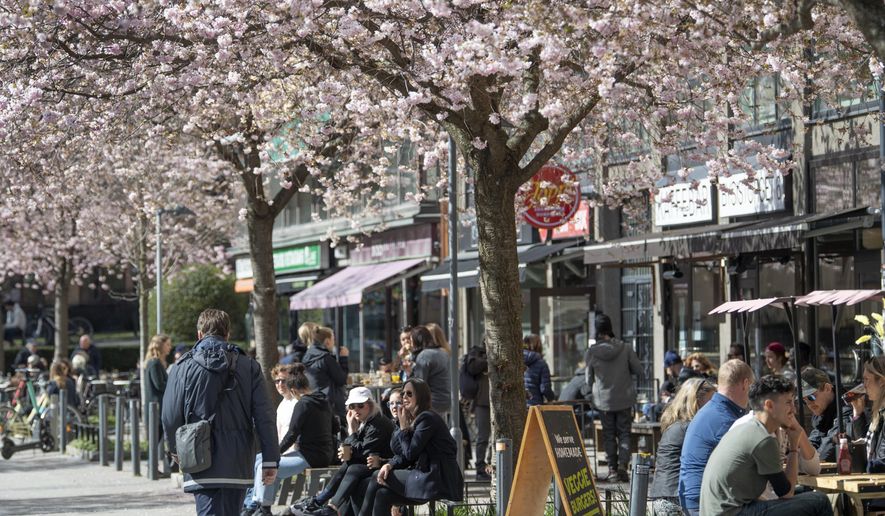Sweden’s leading epidemiologist said Wednesday the Nordic nation is starting to see a plateau in coronavirus cases despite the government’s controversial decision to refrain from a countrywide lockdown, a response critics say is dangerously relaxed.
Stockholm has been a distinct outlier in Europe, rejecting the severe restrictions on crowds and businesses that many of its neighbors have adopted to fight the COVID-19 threat.
Dr. Anders Tegnell, Sweden’s state epidemiologist, told a Washington teleconference Wednesday that the “fairly slow” development of the virus in Sweden is contributing to officials’ decision to keep the country open, while many neighboring countries are adopting strict mitigation policies.
Despite Sweden’s case count climbing to nearly 12,000 infected and around 1,200 deaths, Swedish officials are not demanding an outright nationwide shutdown, allowing restaurants and businesses to remain open to the public, so long as groups are limited to only a few people at a time.
As government leaders in the UK and the United States are grappling with how to revive dormant economies, Dr. Tegnell said the Swedish approach will allow the country to maintain social distancing measures in the long term without putting the economic system at risk. Dr. Tegnell said he believes certain regions in Sweden are already very close to achieving “herd immunity” — a state where so many in the population have built up resistance to the virus that it is no longer a pandemic threat.
“We do believe the main difference between our policies and many other countries’ policies is that we could easily keep these kinds of policies in place for months, maybe even years, without any real damage to society or our economy,” Dr. Tegnell said.
Although the government has not issued a stay-at-home order, many Swedes have decided to quarantine and practice social distancing on their own volition, Dr. Tegnell said.
Allowing the public to make their own decisions surrounding protection against disease follows a years-long tradition in the Swedish public health system. Dr. Tegnell said the government does not require vaccinations by law, but 98 percent of Swedish children have been vaccinated.
“It’s a long tradition that has worked very well,” Dr. Tegnell said.
Dr. Tegnell said he is most concerned about Sweden’s vulnerable nursing homes. More than 50% of Sweden’s coronavirus deaths of people over the age of 70 are occurring in nursing homes, comparable to the rates in other countries.
While critics say Sweden’s coronavirus mortality rate, which hovers around 10%, reveals the need for stricter mitigation measures, 80% of Swedes believe the government’s response to the virus has been sufficient thus far, Dr. Tegnell said.
Many nations are concerned that those not exhibiting symptoms may still be spreading COVID-19. Dr. Anthony Fauci, the United States’ leading infectious disease expert, said he estimates 25 to 50 percent of people infected with the coronavirus are asymptomatic, yet scientists remain unsure of what role carriers play in the spread of the virus.
Bu Dr. Tegnell said that is not a prime concern for his government.
“From a Swedish perspective, we have come to the conclusion in our strategy that [asymptomatic carriers] don’t really matter all that much because our strategy does not build on finding every case that spreads disease,” Dr. Tegnell said. “Our strategy very much builds on diminishing the spread as much as possible.”




Please read our comment policy before commenting.